- Home
- Margaret Pemberton
Coronation Summer Page 7
Coronation Summer Read online
Page 7
‘Then I’ll ask if I can look after Johnny,’ she said, carefully avoiding Jack’s eyes, not wanting to see the expression she was sure would be in them. ‘Are you going to stay for breakfast? The tomatoes and mushrooms are nearly cooked, and the eggs will only take a couple of minutes.’
‘No, but thanks all the same.’ Billy rose to his feet. He’d have liked to talk to Jack about Archie Duke but, as it was clearly impossible to do so, he didn’t fancy hanging around. He had a business to run for one thing, and for another, he just couldn’t feel comfortable in Christina’s presence. She was too self-contained. Too reserved. There was no south-east London buoyancy or fizz to her. Instead, there was an elegance so cool and sleek, it was unnerving.
Take this morning, for instance. Any other woman, woken so early by an unexpected visitor, would be dressed in a comfortably shabby dressing-gown and slippers. Christina wasn’t wearing a dressing-gown of any description, nor was she wearing one of the floral-patterned, sleeveless, wrap-around aprons that most south-east London women wore when at home, doing their chores. Instead she was wearing wedge-heeled sandals with a pair of grey flannel slacks, a white shirt and a big, soft grey Shetland sweater. A sweater that must have cost a small fortune. With her satin-dark shoulder-length hair held away from either side of her face with ivory combs, she looked more like a Hollywood film star than a south-east London housewife. She didn’t look like an American-born Hollywood film star, though. There was something too foreign about her for that; something too disturbing and elusive.
He paused as he stood on the doorstep after letting himself out of the house. It was ten past eight. If he dawdled for another few minutes he might well see Daisy and Jilly leaving number four on their way to their respective schools. If he did, he could give them a lift in his little run-about lorry. It would be a bit of a squeeze for the two of them up front in the cab, but Daisy and Jilly wouldn’t mind. He took a dog-end out of his jacket pocket and lit it, leaning against the Robson’s gate to wait for them.
Twenty minutes later, Christina left the house, doing so even before Jack had left it, walking up the square towards number four, the sun on her face already warm, the air fragrant with the scent of magnolia blossom. There were magnolias everywhere in Magnolia Square, though why there were so many and who had originally begun planting them, no one had been able to tell her. On the island in the centre of the square, at the doorway of St Mark’s Church, there was an old and magnificent magnolia tree, its branches aching with snowy, rose-tinted blossom. In the garden of number six was a magnolia bush, its star-shaped flowers a flawless white, and in Kate’s garden was a glorious magnolia sieboldii, all of ten foot high and five foot wide, its pendulous creamy flowers cradling stamens the colour of jewelled wine.
‘Mornin’!’ Hettie Collins called out to her from the far side of the square as she set off for a morning’s shopping down Lewisham market, her black coat buttoned up to her throat despite the May sunshine, a black straw hat crammed over her iron-grey curls. ‘Is there trouble at the Emmersons? Leon was banging on the vicarage door at six o’clock this morning. I know, because I saw him when I was letting the cat in.’
Hettie wasn’t a street trader, but her voice was loud enough for one. Christina, unsure of whether Matthew’s disappearance was common knowledge and, if it wasn’t, if Kate wanted to keep it that way, gave a slight shrug of her shoulders. ‘I can’t stop to chat, Hettie!’ she called back to her. ‘I’m in a hurry! ’Bye!’ and before Hettie could make a response, she turned her back on her, walking at a brisk pace up Kate’s black-and-white diamond-tiled pathway.
Hettie gritted her teeth, staring after her malevolently. She didn’t want a friendly chat. She wanted a straight answer to a straight question. Squaring her shoulders and thereby shifting her ample bosom into a more comfortable position beneath the strained buttons of her coat, she stomped off in the direction of Magnolia Hill and Lewisham. She’d never liked Christina Robson. In the days when Christina had been Christina Frank, a Jewish refugee everyone had felt sorry for, she’d felt sorry for her, too, but she’d never liked her. Why Jack Robson should have married her, when he could have married a nice and jolly south-east London girl, she didn’t for the life of her know. She’d put good money on one thing, though. The day would come when he’d regret the choice he’d made. She was as sure of that as she was of her own name.
Christina knocked on Kate’s lemon-painted front door and, without waiting for the door to be opened for her, opened it and stepped into the hallway beyond, calling out in time-honoured Magnolia Square fashion, ‘Cooee! It’s me! Christina!’
The Emmerson house was Edwardian and the hall and the hallway beyond it, leading past the foot of the stairs towards the back of the house and the kitchen, was high-ceilinged and spaciously wide.
‘’Lo, Auntie Cwistina!’ a little voice carolled back from behind a kitchen door half-panelled in panes of coloured glass.
Seconds later the door was wide open and Johnny was charging down the hallway towards her, one strap of his dungarees still unfastened, his unbrushed mop of hair a riot of tangled curls. ‘I’m not staying at home today!’ he informed her gleefully as he ran into her arms. ‘I’m going to Auntie Cawwie’s. Have you come to take me to Auntie Cawwie’s? Are we going to the park? Are we going to feed the deer?’
‘Come through,’ Kate said to her a trifle breathlessly from the kitchen doorway, the heavy braid of hair she usually wore coiled in a bun swinging over her shoulder. It was waist-length, and with her un-powdered face and unlipsticked mouth, she looked scarcely old enough to be Johnny’s mother, let alone the mother of a twelve-year-old boy and the adoptive mother of a child even older.
‘I assume Jack’s told you the news?’ she said, as Christina walked into the kitchen, Johnny in her arms and straddling her hip. ‘I’m just getting Johnny ready to take over to Carrie’s. She’s going to look after him for me today while I go down to Somerset by train. I want to talk to Matthew’s headmaster face to face.’ In the light of the sunshine streaming through the window, her face was ivory pale and there were blue-shadowed circles of sleeplessness and anxiety carved beneath her eyes.
Christina’s heart plummeted. Not only had she been denied the pleasure of taking Jilly to school, but it looked as if she was also going to be denied the pleasure of looking after Johnny. ‘But won’t Carrie be working down the market?’ she asked. ‘Won’t it be difficult for her? It might be easier if I looked after him for you.’ Her voice was so studiedly casual it would have taken someone with a lot less on her mind than Kate to realize the passionate plea lying behind it.
Kate swung her braid back over her shoulder and, taking Johnny from Christina’s arms, sat him on her draining-board.
‘It’s kind of you to offer,’ she said, beginning to brush his hair in such swift haste that Johnny yelped in protest, ‘but Carrie’s already told her dad she won’t be serving on the stall today, and her mum’s going to stand in for her.’ With Johnny’s riot of silk curls as neat as she had time to make them, she speedily adjusted his dungarees strap. ‘I want to try and catch the ten-thirty train from Paddington to Taunton, so it means being at Blackheath Station by nine-fifteen at the latest.’ Scooping her still-complaining child from the draining-board, she set him back on his feet. ‘Will you take him to Carrie’s for me?’ she asked, sweeping her braid into a neat coil in the nape of her neck. ‘That will save me at least five minutes.’
‘Is Leon going with you?’ Christina had already lifted Johnny back up into her arms. She hadn’t seen sight or sound of Leon since entering the house, but it was possible he was at the vicarage, making telephone calls.
Kate began taking hairpins out of the pocket of her turquoise cotton skirt, anchoring the heavy weight of her corn-gold hair with swift expertise. ‘No.’ She gave a hasty look towards her kitchen clock. ‘He’s gone to work. He doesn’t know I’m going. I only decided I ought to do so a half hour ago. I’ll be back by late tonight, though, and I�
�ve left him a note.’ She touched her wrist, realized she hadn’t put her watch on, and whirled out of the kitchen in order to find it.
Christina hugged Johnny close. Kate and Leon had obviously judged he was too young to be told about Matthew’s disappearance because he was giggling, his dusky cheeks winsomely chubby, his toffee-brown eyes dancing with high spirits. Her throat tightened. Why was it so easy for some women to have children and so hard, often impossible, for others to have them? There simply seemed no logic to it. Carrie, for instance, had conceived and carried Rose without even thinking about it, but when a second baby came along, she had miscarried at six months and there had been no babies since. As for Kate . . .
Christina looked around her friend’s cheery kitchen. Kate had never had any trouble in conceiving and carrying babies. Or of adopting them. On the open-shelved dresser, propped against a collection of prettily patterned plates, were school photographs of Daisy and Matthew, Luke and Jilly. On the wall near the window was pinned a splodgily painted picture of an unrecognizable object, presumably painted by Johnny. A little above it was a crayoned picture of a slightly fleshed-out stick figure, its head crowned with a mass of squiggles to indicate tight curly hair. A balloon was coming out of a smiling mouth with the word ‘HELLO’ printed inside it. Underneath the figure was the proud and very carefully printed caption, ‘MY DADDY’ and, in the bottom right-hand corner, the childish signature, ‘Daisy, aged 10’. Daisy’s love for Leon and Kate, and theirs for her, was obvious. Why, then, if she and Jack adopted a child, should it be any different? Why was Jack so adamant that an adopted child would not at all be like having a child of their own? Why was he so violently opposed to the very idea of their adopting a baby?
Kate burst into the kitchen, a cream-coloured jacket over one arm, her handbag in the other. ‘Right! Let’s be off! I might just make the next train to Charing Cross if I run all the way to the station!’
Seconds later Christina and Johnny were standing on the pavement outside number four, watching Kate run fleet-footedly across the top right-hand corner of the square, past the vicarage and into Magnolia Terrace.
Johnny’s sunny expression changed to one of sudden uncertainty. ‘Is Mummy coming back?’ he asked, looking up at her as he stood by her side, his hand in hers.
‘Yes, Johnny, of course she is.’
There wasn’t a shadow of doubt in Christina’s voice, and Johnny’s fears vanished. ‘Mummy should have made me sandwiches, shouldn’t she?’ he said chattily as she began to walk him across the square. ‘Sandwiches like Daddy’s sandwiches. Sandwiches so big.’ With his free hand he stretched his thumb and forefinger as wide apart as they would go.
Christina smiled down at him, wondering what Carrie’s reaction would be if she suggested to her that she looked after Johnny for her. She could make a picnic lunch and they could spend the day in Greenwich Park and perhaps go for a walk down by the river . . .
‘Who that man?’ Johnny asked as they walked past St Mark’s towards the bottom left-hand corner of the square. He pointed to the top step of number nine where Zac Hemingway was sitting in the sunshine, watching the world go by.
‘I’ve no idea.’ A quick glance in Zac’s direction told her he was most likely Jack’s new protégé, but she didn’t want him to overhear her talking about him. He would no doubt hear enough people doing that without her joining their ranks – and anyway, she could easily be wrong in her assumption. Queenie Tillet took all kinds of people in as lodgers, many of them, such as visiting circus or fairground folk, on a very temporary basis. The young man on Queenie’s top step, a white T-shirt stretched across his bulging chest muscles, a pair of jeans snug on his hips, could very easily be a circus strongman, or an exhibition wrestler, or . . .
‘Good morning,’ he said pleasantly as they reached Queenie’s gateway. ‘Lovely day, isn’t it?’
With reserved politeness and avoiding direct eye contact with him, Christina agreed that it was, indeed, a lovely day.
Zac grinned to himself as she quickened her pace, the toddler at her side having to break into a trot to keep up with her. Despite the harmlessness of his few friendly words, she hadn’t liked him speaking to her. He wondered how she reacted when wolf-whistled at, in no doubt at all that it was something that happened with great regularity. His grin deepened. The blokes in question wouldn’t get very far, that was for sure. The toddler at her side had obviously been fathered by the darkie he’d seen entering the vicarage in such haste a few hours earlier. He wondered if she was the kiddy’s mother, or if the Scandinavian-looking girl who came out of number four with her, and who then sprinted off in the direction of the heath, was his mother. Either way, the chap in question was exceedingly lucky. Both women, in very different ways, were stunning head-turners. With deepening interest, he saw the classily turned-out young woman walk up the Collins’s front path. So she was a friend of Carrie Collins, was she? He rose to his feet, hooking his thumbs in the pockets of his Levi’s. They were about as dissimilar as two dark-haired women could be, one possessing an air of silk-smooth, understated elegance and aloofness; the other slapdash and aflame with gypsy vibrancy. Of the two, he knew who appealed to him most. It wasn’t only the father of the little boy now skipping across the doorstep of number seventeen who was lucky. Danny Collins was lucky too – though he didn’t seem to know it.
Daisy stood in assembly, the majestic cadences of William Blake’s ‘Jerusalem’ resounding around her. It was her favourite hymn and she usually sang it with great enjoyment. But not this morning. This morning she didn’t want to sing. This morning she didn’t even want to be at school. Three rows in front of her she could see Rose’s distinctive head of mahogany-red curls. She knew that Rose would know of Matthew’s disappearance, because her mother would have told her of it when she explained that she was looking after Johnny for the day.
‘Bring me my bo . . . w of burning go . . . ld,’ chorused her fellow pupils, with little respect for tune.
Daisy caught Miss Bumby, her form-mistress, looking at her disapprovingly, and unenthusiastically joined in on ‘Bring me my arrows of desire.’
It was typical of Rose’s mum that she wouldn’t think twice about giving up a day’s work in order to help her own mum out. Her mum and Rose’s mum had been best friends since they were toddlers, just as she and Rose had always been best friends. All the same, there was no need for Johnny to be spending the day at the Collins’s. She could have stayed home from school and looked after him. That way, she would have been on the spot if there was news of Matthew. As it was, she was stuck in school and, even if Matthew were found, she wouldn’t know about it until she got back home, at tea-time.
‘Bring me my spea . . . r, O clouds unfo . . . ld,’ sang Blackheath High en masse. ‘Bring me my chario . . . t of fi . . . re.’
She hadn’t yet had a chance to talk with Rose, and wouldn’t have until lunchtime, because Rose was a year younger and in a different form, but she knew how worried Rose would be, for Rose knew that Matthew wasn’t like some local boys, happy to play truant just for the hell of it. He didn’t have the disposition of a tearaway. He was too naturally solemn, too introspective.
‘I will not cea . . . se from mental flight, Nor shall my sword sleep in my ha . . . nd,’ warbled her classmates at full throttle as the end of the hymn came in sight. ‘Till we have built Je . . . ru . . . sa . . . lem, In Eng . . . land’s green and pleasant land!’
As the hymn came to a rousing conclusion, Rose turned her head, her eyes meeting Daisy’s, the urgent query in them unmistakable. Daisy lifted her shoulders in an expressive, negative shrug and then, under Miss Bumby’s eagle eye, was obliged to turn, filing out of the hall with the rest of her classmates in a crocodile that would have done credit to a military parade-ground.
At the classroom door, Miss Bumby detained her. ‘A few words Daisy, if you please,’ she said peremptorily.
Daisy stepped from the crocodile, her heart leaping. Was there news? Had her mo
ther telephoned the school from the vicarage, asking that a message be passed on to her? ‘Please God,’ she prayed inwardly. ‘Please, please . . .’
‘I saw your arrival at school this morning,’ Miss Bumby continued crisply, crushing her hopes instantly. ‘It was highly undignified. The school entrance is not suitably sited for lorries – especially lorries loaded with rusting old ovens and laundry coppers—’
‘Scrap-metal,’ Daisy said in a taut, tight voice. ‘The lorry was loaded with scrap-metal.’
Miss Bumby, unaccustomed to being interrupted in such a manner, breathed in sharply, her thin nostrils whitening. Daisy Emmerson was a bright girl – undoubtedly university material – but she’d never gain a university place if she began neglecting her studies for such an unsuitable boyfriend while still in the fifth form. A scrap-metal-collecting lorry-driver indeed! Why, the young man was no different to a rag-and-bone-man or a street totter!
‘May I remind you that fifth- and sixth-formers are not encouraged to have boyfriends,’ she said acidly. ‘They interfere with a girl’s schoolwork, and your schoolwork, though of an exceptionally high standard, must remain at a high standard if you are to gain a place at university.’
Daisy’s cheeks flushed scarlet in a mixture of anger, frustration and embarrassment. She wanted very much to put Miss Bumby in her place by truthfully stating that Billy wasn’t her boyfriend, but knowing how very much Billy hoped that one day he would be, couldn’t bring herself to do so. ‘The friend in question is a family friend,’ she said stiffly. ‘I had to take my younger sister to her junior school this morning and, so that doing so wouldn’t make me late, he very kindly gave both me and her a lift.’
Miss Bumby had a long enough experience of teenage girls to know when one of them was telling her the truth. She gave a satisfied nod. ‘Then the subject is closed,’ she said, scrupulously fair as always and also mightily relieved.

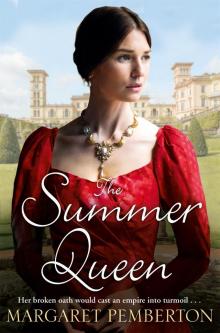 The Summer Queen
The Summer Queen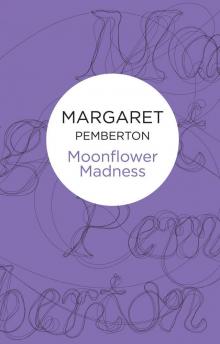 Moonflower Madness
Moonflower Madness The Londoners
The Londoners The Flower Garden
The Flower Garden Yorkshire Rose
Yorkshire Rose Vengeance in the Sun
Vengeance in the Sun Zadruga
Zadruga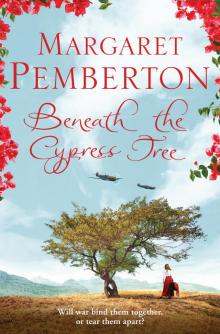 Beneath the Cypress Tree
Beneath the Cypress Tree Magnolia Square
Magnolia Square Party in Peking
Party in Peking Lion of Languedoc
Lion of Languedoc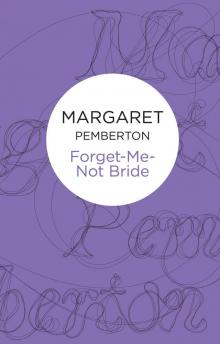 Forget-Me-Not Bride
Forget-Me-Not Bride The Guilty Secret
The Guilty Secret Rendezvous With Danger
Rendezvous With Danger A Season of Secrets
A Season of Secrets Silver Shadows, Golden Dreams
Silver Shadows, Golden Dreams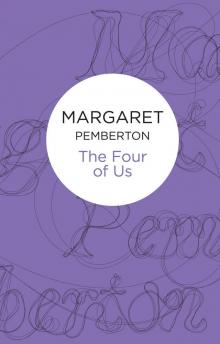 The Four of Us
The Four of Us Devil's Palace
Devil's Palace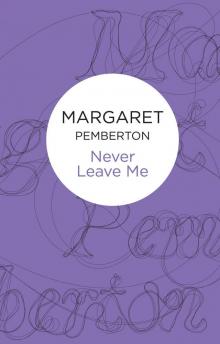 Never Leave Me
Never Leave Me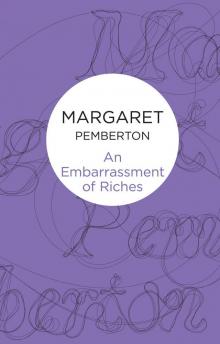 An Embarrassment of Riches
An Embarrassment of Riches African Enchantment
African Enchantment White Christmas in Saigon
White Christmas in Saigon Coronation Summer
Coronation Summer A Multitude of Sins
A Multitude of Sins Tapestry of Fear
Tapestry of Fear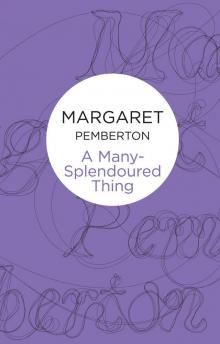 A Many-Splendoured Thing
A Many-Splendoured Thing